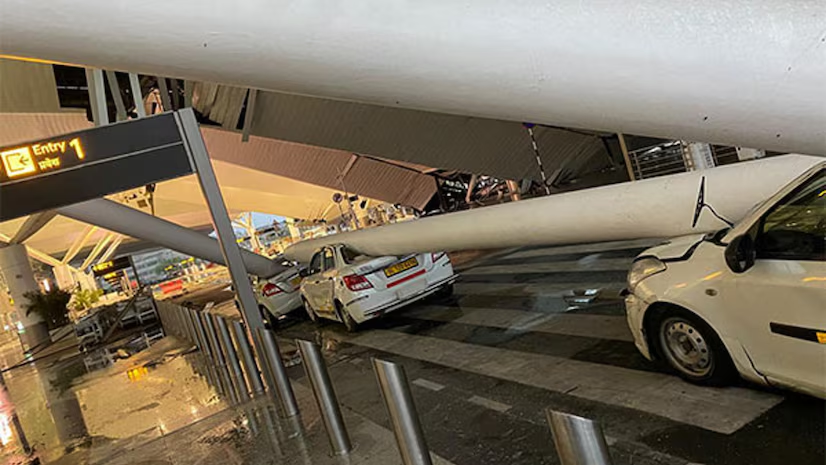Introduction
More than 50 children along with 135 people, were killed in the Morbi bridge collapse in India’s Gujarat state. More recently One person died and five were injured after a portion of the roof of the Delhi airport’s Terminal-1 collapsed on cars, including taxis, amid heavy rain early Friday. Many other bridges have collapsed recently in various states after the onset of the monsoon.
Act of God
On asking the officials about the reason for these collapses, they seek an easy way out by blaming the incidents as an act of god. An act of god is a general defence under the law of torts it is sought by a person when an incident is out of his control and has occurred due to the forces of nature.
Well, to some extent even after accepting the views of the official blaming it all on act of god still seeing so many incidents raise a question of doubt pointing towards an act of fraud in the construction process and it is pragmatically true as well if looked at in detail.
Act of fraud
Fraud means the active concealment of a fact by one having knowledge or belief of the fact in legal language. The construction contractors try to do cost-cutting and hence compromise with quality of the construction. There is a saying in Japan ‘a cheap man always pays twice’ This goes exactly with the situation as the contractors later keep spending the money on the repairs.
Why do the contractors compromise on the quality of construction?
The reason could be saving money, corruption or the tender allotting policy of the government.
There are major issues with the tender-allocating policies of the government which forces the -contractors to cost-cutting in the construction process. The government of India uses an L1 method in allocating the tender for the construction of bridges and public infrastructure.
L1 method
In tender allocation, L1 stands for “Lowest Bidder“. It refers to the method where the contract is awarded to the bidder who submits the lowest-priced offer, for construction after submitting its proposed pre-made budget for the construction.
This method is primarily based on cost. The bidder who bids the lowest price is given the Tender for the construction hence many bidders submit forged documents to win the bids. The bid with the lowest quoted price is chosen, assuming it meets all technical requirements. This method potentially saves the government money.
Drawbacks
The method compromises the quality if the focus is solely on the lowest price. Companies might cut corners or use cheaper materials to meet the budget. It also discourages experienced or innovative companies from bidding if they can’t compete solely on price.
Multi criteria selection process
A multi-criteria selection process should be adopted by the government for issuing the tender for the construction. The selection process should examine the technical qualities, past experience, the safety checks as well as the price to select a contractor.
Liability of the contractor
A lot of contractors don’t do pre-research of soil quality and design which causes a problem of seepage and water logging. Apart from having a low budget, the contractors don’t have the technical qualities required to construct a bridge or public infrastructure. The contractor never follows the blueprint for the construction properly.
Common Authority.
There is a need for a common authority that can be held liable for the collapse of the infrastructures. National highways are maintained by the NHAI, border roads are maintained by the BORDER ROAD ORGANISATION and the state infrastructure is maintained by the Municipal corporation and PWD respectively. hence there is a need to have a common authority to which the people can address their grievances and sought redressal.
Solution
India can take inspiration from other nation like japan where the construction of tall building are approved only after a proper examination by their competent engineers similarly in India there in need to form a organisation consisting competent civil engineers who can look into the construction of various infrastructure in India and can submit its observation report to the government of India
Conclusion
Acts of God can’t be the sole reasons for the collapse of so many bridges in India recently. To prove the incident as an act of god, the person has to prove that the event was unforeseeable but if we take specific incident into consideration, like the falling of the roof IGI Airport, post examination showed that the pillars of the roof were rusted, hence the maintenance and repair were not done Similarly, in the Morbi Bridge incident, the tender for the repair was given to the company that had no prior experience in construction.
CONTRIBUTED BY; LUCKY SINGH (INTERN), ARMY INSTITUTE OF LAW, MOHALI


They provide a global perspective on local health issues.
lisinopril side effects in men
Speedy service with a smile!
A pharmacy that’s globally recognized and locally loved.
how to get lisinopril without insurance
Always responsive, regardless of time zones.
Their medication synchronization service is fantastic.
can i get cheap cytotec online
A pharmacy that’s globally recognized and locally loved.
For most up-to-date news you have to pay a visit internet and on world-wide-web I found this web site as a finest web site for most recent updates.